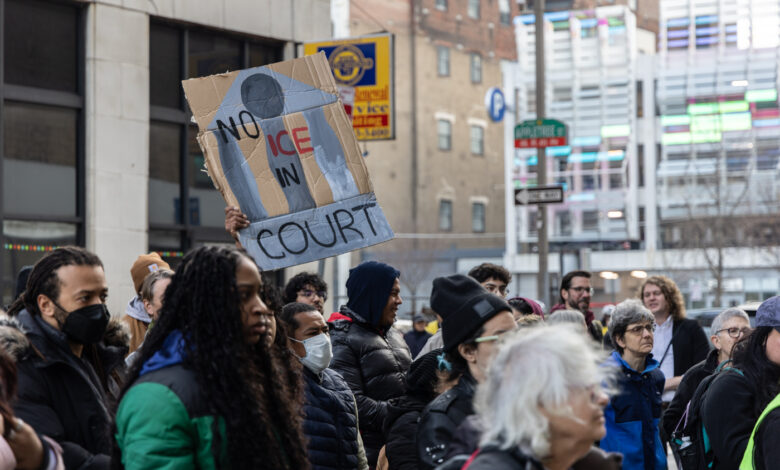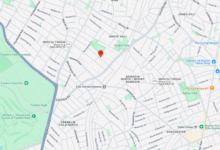In Pennsylvania, there is no law that allows parents to designate a temporary guardian if they become unavailable for reasons such as detention or deportation.
“In Pennsylvania there is not a way to be proactive about these types of situations except for very specific situations that are covered by what’s known as Pennsylvania’s Standby Guardianship Ac t,” Pearlstein said. Those specific situations include when a parent is terminally ill or is entering rehab treatment.
In the case of an immigrant parent getting detained or deported, there are basically two options for formalizing who would care for a child.
Each route has its advantages and disadvantages. Usually, court and non-court options differ in their validity and flexibility.
With a court option, parents or caregivers can be sure that the family member or caregiver will have the authority to make significant decisions on behalf of the child.
The immigrant advocacy group Juntos held a protest vigil outside U.S. Immigration and Customs Enforcement in Philadelphia, calling on Mayor Cherelle Parker to resist President-elect Donald Trump’s mass deportation plans. December 10, 2024. (Kimberly Paynter/WHYY) “We talk about child custody more in the circumstance of who has the authority to make medical decisions or make educational decisions for a child, which is referred to as legal custody,” Pearlstein said, “and then physical custody, referring to who has authority to have physical care and control of the child.”
In the case of disagreements, such as whether the child should travel to meet their parents if they are deported, the family member or caregiver who has custody of the child would decide whether to allow it. If the caregiver refused to return the child to the parent or enter a new custody agreement, the court would decide who should have custody.
“The disadvantage of not going through court is that some of these forms and authorizations may not be accepted by every entity. It’s not a guarantee,” Pearlstein added. A school or hospital can choose whether to accept or reject any of the signed forms.
“However, it could be more of a temporary situation. Therefore, not filing a court order, may be able to give the legal parent or the legal guardian custodian some time to figure out what to do, while allowing someone else to have authorization and then without having to officially undo that with the court,” she added.
Plus, some undocumented people may be afraid to go to court. When Billy Penn spoke with Juntos, they reported seeing an increase in undocumented immigrants being arrested during mandatory check-ins.
“They are basically being asked to verify their identity, their location. They’re called ICE check-ins, and they can happen every other month, every month. But they’re being asked to go and then they don’t come out,” said Romero Chavarria. “You have families who if they’re applying for asylum and they don’t go to their immigration court, then they’re automatically issued a deportation order. But then if they go, there’s no certainty about whether or not they will be picked up.”
Juntos reported that a community member was detained outside the courthouse during a court appointment on March 7.
Hard Conversations
ICE’s actions are impacting people’s attitudes and behaviors, said Romero Chavarria.
“I think people are already changing the way they go about their daily lives … A woman told me that now she does her shopping on the weekends. She tries not to go out during the week,” she shared. “We know that Trump uses his rhetoric not only to promote hatred, but also to mentally impact our community. When you are afraid, you forget that you have rights, you forget that you can fight your immigration case. For us, it is essential that the community always remembers that.”
Preparedness is often not easy, Romero Chavarria said. It requires taking a step back and considering what is best for everyone involved and working toward it, which can lead to challenging conversations.
“There are children here who don’t know that their parents are undocumented and could be arrested,” she said. “These are conversations that are not easy to have … But it’s something that, once you do it, you will feel much better because it gives you clarity.”
Juntos emphasizes that strengthening a community is also a form of care. “We at Juntos provide this space so the community knows they are not alone, and that if ICE comes to their door and arrests them, we will be there for them, looking out for their families,” said Romero Chavarria. “The way we can defend ourselves is by knowing our rights, having a family plan, and staying connected in the community.”




















